ICICSP 2024 Keynote Speaker
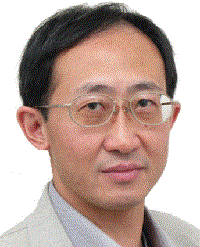
Prof. Honggang Zhang, Zhejiang University, China
Fellow, IEEE and AAIA
Dr. Honggang ZHANG- IEEE Fellow, AAIA Fellow, Full Professor (03/2008-03/2022), Adjunct Professor (04/2022-), College of Information Science and Electronic Engineering; Co-Director, York-Zhejiang Lab for Cognitive Radio and Green Communications; Zhejiang University, China; Chief Managing Editor of Intelligent Computing (12/2021-), a Science Partner Journal (SPJ), Zhejiang Lab & AAAS (American Association for the Advancement of Science); International Chair Professor of Excellence (12/2012 -12/2014), CominLabs Excellence Center (Laboratoire d'Excellence), Université Européenne de Bretagne (UEB) & Supélec (https://project.inria.fr/chaireueb/), France; Honorary Visiting Professor, the University of York, UK (08/2010-08/2018). Dr. Honggang ZHANG received the Ph.D. degree in Electrical Engineering from Kagoshima University, Japan, in March 1999. Prior to that, he received the Bachelor of Engineering and Master of Engineering degrees, both in Electrical Engineering, from Huazhong University of Science & Technology (HUST), China, in 1989, and Lanzhou University of Technology, China, in 1992, respectively. From October 1999 to March 2002, he was with the Shin-Kawasaki Research Center, Telecommunications Advancement Organization (TAO) of Japan, as a TAO Research Fellow. From April 2002 to November 2002, he joined the TOYOTA IT Center, where he performed research and development on software-defined radio (SDR) with applications to Intelligent Transport Systems (ITS). From December 2002 to August 2004, he has been with the UWB (Ultra-Wideband) Research Consortium, Communications Research Laboratory (CRL) and National Institute of Information and Communications Technology (NICT) of Japan, where his R&D responsibilities were focused on UWB wireless communications, IEEE 802.15.3a & 4a WPAN standardizations, Wireless 1394 and “1394-over-UWB” smart home networks. He was the founding member of UWB Forum and the principle author and contributor for proposing DS-UWB in IEEE 802.15 WPAN standardization task group, for which he initiated the “Soft-Spectrum Adaptation (SSA)” technique and contributed to its worldwide developments. From September 2004 to February 2008, he has been with CREATE-NET (https://create-net.fbk.eu/), where he leaded its wireless teams in exploring Cognitive Radio (CR) and its integration with Ultra-Wideband (UWB) technologies for dynamic open-spectrum wireless communications and networks evolution (i.e. UWB-CR: Ultra-Wideband Cognitive Radio) while participated a number of European FP6/FP7 projects (EUWB, PULSERS 2). Dr. Honggang ZHANG has served as the Chair of the Technical Committee on Cognitive Networks (TCCN) of the IEEE Communications Society (ComSoc) during 2011-2012. He was the Co-Chair of IEEE Globecom 2008 Symposium and IEEE ICC 2013 Symposium. He was the founding TPC Co-Chair of CrownCom 2006 (International Conference on Cognitive Radio Oriented Wireless Networks and Communications 2006) and the Steering Committee Member of CrownCom 2006-2009. He was the General Co-Chair of IEEE GreenCom 2010 (The 2010 IEEE International Conference on Green Computing and Communications) and the TPC Co-Chair of IEEE OnlineGreenComm 2014 (The 2014 IEEE Online Conference on Green Communications). Dr. Honggang ZHANG has been the Lead Guest Editor of the IEEE Communications Magazine feature topic issues on “Green Communications” (2010-2011). He was the Series Editor of IEEE Communications Magazine (Green Communications and Computing Networks Series). He is the co-editor/co-author of two books with the titles of “Cognitive Communications - Distributed Artificial Intelligence (DAI), Regulatory Policy & Economics, Implementation” (Wiley) and “Green Communications: Theoretical Fundamentals, Algorithms and Applications” (CRC Press), respectively.
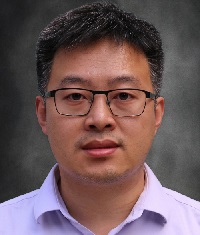
Prof. Haijun Zhang, University of Science and Technology Beijing, China
Fellow, IEEE and AAIA
Haijun Zhang (Fellow of IEEE and AAIA) is currently a Full Professor and Dean at the University of Science and Technology Beijing, China. He was a postdoctoral research fellow in the Department of Electrical and Computer Engineering at the University of British Columbia (UBC), Canada. He serves/ served as Track Co-Chair of WCNC 2020, Symposium Chair of Globecom'19, TPC Co-Chair of INFOCOM 2018 Workshop on Integrating Edge Computing, Caching, and Offloading in Next Generation Networks, and General Co-Chair of GameNets'16. He serves as an Editor of IEEE Transactions on Information Forensics and Security, IEEE Transactions on Network Science and Engineering, and IEEE Transactions on Communications. He received the IEEE CSIM Technical Committee Best Journal Paper Award, in 2018, IEEE ComSoc Young Author Best Paper Award, in 2017, and IEEE ComSoc Asia-Pacific Best Young Researcher Award, in 2019. He is the Chair of IEEE TCGCC and a distinguished Lecturer of IEEE. He is a Fellow of IEEE and AAIA.
Speech Title: Resource Management in 6G
Abstract:This talk will identify and discuss technical challenges and recent results related to resource management in 6G mobile network. The talk is mainly divided into four parts. The first part will introduce 6G mobile networks, discuss about the 6G mobile networks architecture, and provide some main technical challenges in 6G mobile networks. The second part will focus on the issue of resource management in 6G networks and provide different recent research findings that help to develop engineering insights. The third part will address the machine learning and deep learning method based future 6G networks and address some key research problems. The last part will summarize by providing a future outlook of resource management in 6G mobile network.
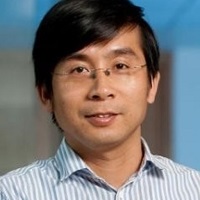
Prof. Trung Q. Duong, Memorial University, Canada and Queen's University Belfast, UK
Fellow, IEEE and AAIA
Dr. Trung Q. Duong (IEEE Fellow and AAIA Fellow) is a Canada Excellence Research Chair at Memorial University of Newfoundland, Canada and a Chair Professor in Telecommunications at Queen’s University Belfast, U.K. He is the only UK-based researcher to have received both prestigious awards from the Royal Academy of Engineering: i) the Royal Academy of Engineering Research Fellowship (2015–2020) and ii) Research Chair of Royal Academy of Engineering (2020-2025). His current research interests include quantum machine learning, optimisation, signal processing, and machine learning in wireless communications. He has published 500+ books/bookchapters/papers with 18,500+ citations and h-index 73.
Speech Title: 6G Digital Twin Networks
Abstract: It is expected that there will be 100 Billion ‘Internet-of-Things’ devices by the year 2025. Thus, the need for improved wireless reliability and latency is greater than ever. However, implementing algorithms to ensure low-latency communication for massive numbers of power-constrained mobile devices conflicts directly with the need for ultra-reliability. Recent advances in communication technologies and powerful computation platforms open opportunities to implement a wide range of breakthrough applications, especially for time sensitive services in industrial automation. In terms of communication perspective, 6G with ultra-reliable and low latency communications (URLLC) will play a vital role in the development and deployment of mission-critical applications, which require high demands on reliability and low latency communications. This opens opportunities to enable a wide range of new applications such as virtual reality (VR) with a 360-degree view, factory automation, autonomous vehicles, remote healthcare, etc. In addition, the development of digital twin opens new opportunities for transforming the cyber-physical systems in terms of intelligence, efficiency and flexibility. However, there are still many technical issues to be resolved to achieve high reliability and low latency with digital twin and apply this technology in practical scenarios due to the complexity of resource allocation in short packet transmissions. This talk will discuss digital twin technologies in industrial automation that require high data rates with ultra-reliability at very low latency for which URLLC is a natural choice. This talk discusses a joint communications and computation design of URLLC multi-tier computing in 6G that supports digital twin networks, not only fundamental requirements, but also enabling technologies, visions, and future challenges.
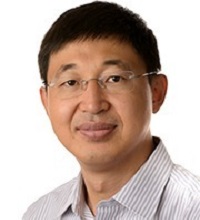
Prof. Yonghui Li, University of Sydney, Australia
Fellow, IEEE
Yonghui Li is now a Professor and Director of Wireless Engineering Laboratory in School of Electrical and Information Engineering, University of Sydney. He is the recipient of the Australian Research Council (ARC)Queen Elizabeth II Fellowship in 2008 and ARC Future Fellowship in 2012. He is an IEEE Fellow. His current research interests are in the area of wireless communications. Professor Li was an editor for IEEE transactions on communications, IEEE transactions on vehicular technology and guest editors for several special issues of IEEE journals, such as IEEE JSAC, IEEE IoT Journals, IEEE Communications Magazine. He received the best paper awards from several conferences. He has published one book, more than 300 papers in premier IEEE journals and more than 200 papers in premier IEEE conferences. His publications have been cited more than 20000 times.
Speech Title:Beyond 5G towards a Super-connected World
Abstract: Connected smart objects, platforms and environments have been identified as the next big technology development, enabling significant society changes and economic growth. The entire physical world will be connected to the Internet, referred to as Internet of Things (IoT). The intelligent IoT network for automatic interaction and processing between objects and environments will become an inherent part of areas such as electricity, transportation, industrial control, utilities management, healthcare, water resources management and mining. Wireless networks are one of the key enabling technologies of the IoT. They are likely to be universally used for last mile connectivity due to their flexibility, scalability and cost effectiveness. The attributes and traffic models of IoT networks are essentially different from those of conventional communication systems, which are designed to transmit voice, data and multimedia. IoT access networks face many unique challenges that cannot be addressed by existing network protocols; these include support for a truly massive number of devices, the transmission of huge volumes of data burst in large-scale networks over limited bandwidth, and the ability to accommodate diverse traffic patterns and quality of service (QoS) requirements. Some IoT applications have much stringent latency and reliability requirements which cannot be accommodated by existing wireless networks. Addressing these challenges requires the development of new wireless access technologies, underlying network protocols, signal processing techniques and security protocols. In this talk, I will present the IoT network development, architecture, key challenges, requirements, potential solutions and recent research progress in this area, particularly in 5G and beyond 5G.
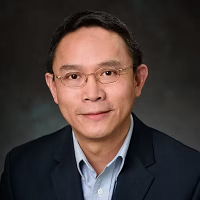
Prof. Hongbin Li, Stevens Institute of Technology, USA
Fellow, IEEE
Hongbin Li is the Charles and Rosanna Batchelor Memorial Chair Professor at the Department of Electrical and Computer Engineering, Stevens Institute of Technology, Hoboken, NJ, USA. His general research interests include statistical signal processing, machine learning, radars, and wireless communications. He was a member of the SPTM and SAM technical committees of the IEEE Signal Processing Society. He served on the editorial boards for IEEE Transactions on Wireless Communications, IEEE Signal Processing Letters, IEEE Transactions on Signal Processing, and Elsevier Signal Processing, and was involved in guesting editing for several IEEE and non-IEEE journals. He received a number of research recognitions including the IEEE Jack Neubauer Memorial Award in 2013 and Provost’s Award for Research Excellence in 2019. He is a Fellow of IEEE. Additional information can be found at: https://www.stevens.edu/profile/hli.
